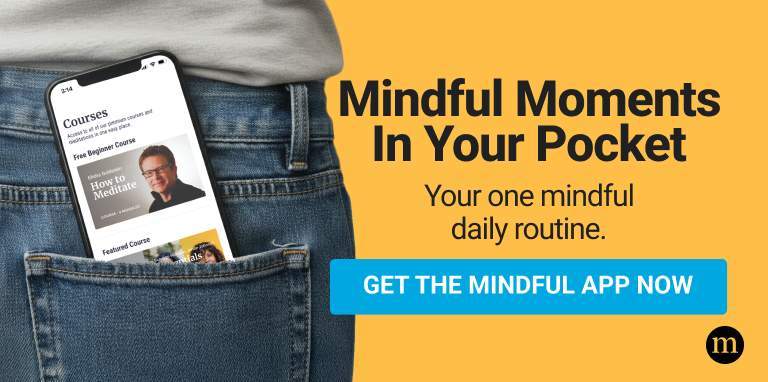Are you against racism? At the same time do you find that your dinner parties consist pretty much of people who look like you? Do you believe workplaces should provide equal opportunities for women—and yet your own office is run exclusively by men?
In her new book, The Person You Mean to Be: How Good People Fight Bias, Dolly Chugh explains why people committed to social inclusion can still suffer from unconscious biases that keep them from achieving their ideals. Through storytelling and a thorough review of the science, Chugh provides us with tips for recognizing bias and reducing its effects in ourselves and our workplaces.
According to Chugh, noticing differences between people is a natural part of being a human being. But, because society so often marginalizes certain groups of people—such as women, transgender people, or the differently abled—we are all swimming in a “soup” of bias that enters our brains and is hard to dislodge. Even people with very pronounced beliefs in equality and social inclusion will carry bias, often at an unconscious level.
We are all swimming in a “soup” of bias that enters our brains and is hard to dislodge. Even people with very pronounced beliefs in equality and social inclusion will carry bias, often at an unconscious level.
Because of this, some people face “headwinds” that hold them back, while others are pushed ahead by “tailwinds.” Evidence of these headwinds and tailwinds show up in many ways, including wealth inequality, health disparities, and biases in the criminal justice system. While we may see ourselves as innocent in creating these inequities, we are still benefiting from them…which makes them hard to resist. Chugh encourages us to face this fact and act as change agents, rather than absolving ourselves.
The ubiquitous human need to protect our identity can get in the way, though. We want to see ourselves as good people, and when that self-image is threatened, we tend toward finding some way to justify why we didn’t act. We might rationalize that we couldn’t have done anything to help or that it wasn’t the right moment to intervene.
“Even when we fall short, our reflex is to claim an identity as a good person,” Chugh writes.
The need to be seen as “good” makes it hard for us to work toward being better allies. We may crave reassurance or fear making mistakes. Chugh suggests that when we feel this desire to protect our self-image, we should take heed and act anyway. It’s important, she writes, for us to move from a place of being a “believer” in social equality to being a “builder” of social equality.
How to do that? Here are the four main tips she outlines in her book.
1. Activate a growth mindset
When we remember that we are learners and don’t have to be perfect, we are more open to understanding our biases and engaging with others around “isms” like racism and sexism. People who believe in a growth mindset—that learning comes through effort—feel less need to be right, rebound better from mistakes and persevere, and are more willing to take responsibility for transgressions.
People who believe in a growth mindset—that learning comes through effort—feel less need to be right, rebound better from mistakes and persevere, and are more willing to take responsibility for transgressions.
If we can maintain a growth mindset as we grapple with our biases, we will be less wounded if our attempts are met with distrust or hostility. Admitting we have a lot to learn and that we have inherent, unconscious biases we want to challenge can help build trust with communities who are marginalized—better, in fact, than trying to pretend you don’t suffer from bias or are “colorblind.”
2. See your ordinary privilege and put it to use
Many of us adhere to the idea of a meritocracy—those who are ahead are talented or have worked harder to get there, pulling themselves up by their own “bootstraps.” Chugh suggests that we challenge that narrative and, instead, recognize the many ways that luck and privilege play a role in success.
This can be difficult, because we often fall prey to confirmation bias—the tendency to give more credence to evidence that confirms our worldview. If we want to believe we deserve our success, we are less apt to see the ways society has helped us along the way. Learning to recognize that our success is partly due to tailwinds and good fortune helps us see the importance of championing policies that can even the score for people who’ve been fighting headwinds.
Chugh makes some practical suggestions for how we can challenge biases at work and at home and take concrete steps to counteract them. For example, those in positions of power can actively seek to promote women or people of color by making sure their viewpoints are heard and valued, by challenging sexual and racist jokes, and by crediting others for shared accomplishments—something they might otherwise neglect to do.
3. Opt for awareness
“Research shows that the more we care about something, the more likely we are to willfully ignore negative relevant information about it,” writes Chugh. That tendency can lead us to disregard troubling information, like whether our favorite tennis shoes are made via child labor or whether our party guest list is diverse.
The antidote is to practice awareness. By simply asking people experiencing headwinds about themselves and their challenges and listening without defensiveness, you can gain insight and increase interpersonal trust. If having that kind of conversation is hard or impossible, you can still learn about people who’ve experienced prejudice by reading books or listening to podcasts that share others’ perspectives.
4. Engage with the people and systems around us
Too often, we try to teach our kids not to notice difference, thinking that if we ignore difference, we help children to avoid prejudice. But research suggests kids will notice difference from birth onward and create their own narratives around race, gender, or disabilities if parents don’t actively discuss difference themselves and provide guidance.
All of us can demand more representation in our media by women, the LGBT+ community, and people of color; confront friends or colleagues who use racial or gendered slurs; work to ensure that our social groups are diverse and that people feel included; and nudge our workplaces toward more equity. It’s important to remember that our goal is not to feel good about ourselves or to pat ourselves on the back, but to learn, show courage, and reach out to those who could use us to challenge unfair systems.
While sometimes this may seem like an overwhelming task, there are many rewards to doing so. Those with more diverse and inclusive work teams tend to perform better, and individuals with more diverse friend groups feel more at ease in cross-group situations. Championing other people’s empowerment is the right thing to do—and it will help us to live true to our values.
This article originally appeared on Greater Good, the online magazine of UC Berkeley’s Greater Good Science Center, one of Mindful’s partners. View the original article.









